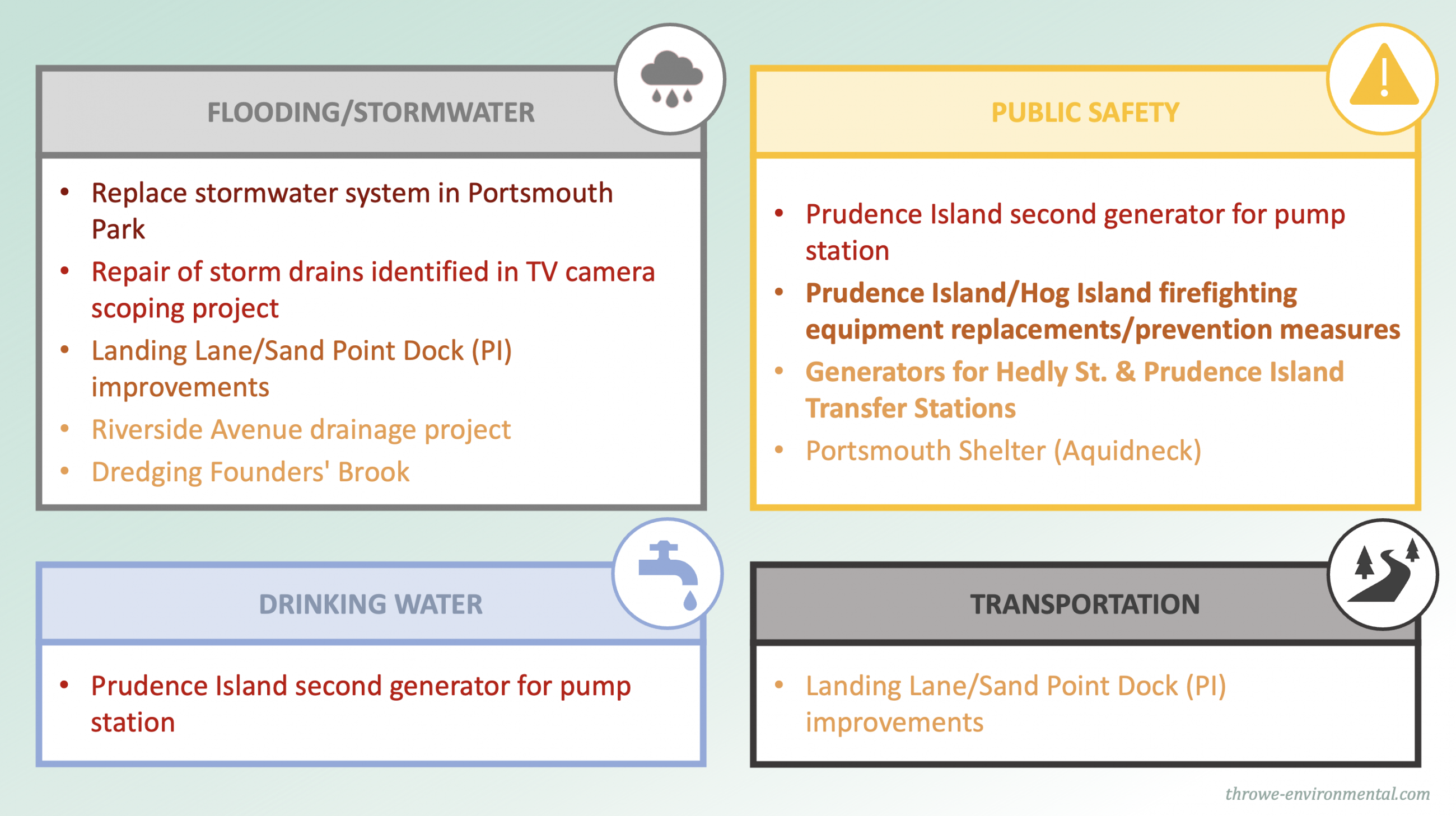On October 7, 2021, Throwe Environmental President Joanne Throwe and Project Partner Kyle Gray participated in a public climate resiliency and financing workshop held by the Town of Portsmouth with support from the SNEP Network. Joanne and Kyle explained the need for comprehensive resilience planning and sustainable financing, while also exploring the resilience capital improvement program (RCIP) developed as part of this technical assistance project.
Originally written and posted by Caitlin Faulds/ecoRI News staff
PORTSMOUTH, R.I. — Nine projects scattered around this Aquidneck Island town will take priority in coming years as the community seeks to build climate resiliency, according to an Oct. 7 resiliency planning and financing workshop.
The projects aim to improve flooding and stormwater resilience, public safety, drinking water, and transportation. The climate-related adaptations will help Portsmouth face the impacts of sea-level rise, rising air and water temperatures, more severe rainfall, and stronger hurricanes, according to Pam Rubinoff of the University of Rhode Island’s Coastal Resources Center.
“We need to really understand our risks,” said Rubinoff, noting that without effective planning increasing sea-level rise and storm surge could leave the largest island in Narragansett Bay without a safe evacuation route.
According to Kyle Gray, project partner at Bristol-based Throwe Environmental LLC, Portsmouth’s priority projects include, in order of importance: replacing the stormwater system in Portsmouth Park; a second generator for the Prudence Island pump station; repairing identified storm drains; dock improvements at Landing Lane and Sand Point; firefighting equipment replacements and prevention measures for Prudence Island and Hog Island; a Riverside Avenue drainage project; generators for the Hedly Street and Prudence Island transfer stations; and dredging of Founders’ Brook.
Projects were prioritized based on type, cost and short-, mid-, and long-term needs, according to Gray. Short-term projects — those that require action in the next three years — will address critical facilities, stormwater management, low-lying flooding, emergency communication, and evacuation.
Projects were predominantly focused on the northern end of town, “really focusing in on Prudence Island and then the areas around Common Fence Point,” Gray said. Public comment was taken at the recent workshop, and the projects are subject to change based on community input. A final project list is expected to be set next month.
Funding and technical assistance for the projects will be provided by the Southeast New England Program (SNEP) Network as part of a municipal award granted to Portsmouth in March 2020.
According to Elizabeth Scott, president of Elizabeth Scott Consulting, a SNEP partner, the regional resiliency network will provide consultant services to the town, offer training and leadership engagement opportunities, and prepare a strategy for climate resiliency planning and financing.
The town’s emergency management director, Ray Perry, said beyond infrastructure adaptations, the town would also need to focus on streamlining emergency response planning in the coming years.
“During a disaster, our greatest point of failure in the community is on … the response management style,” he said.
Town planner Gary Crosby agreed, noting that public education would be “absolutely key” in every stage of the process, from emergency planning and mitigation to response. The project priorities, he said, are a good place to start.
“Even though many of these projects are very localized,” Crosby said, “they benefit everyone in the town of Portsmouth.”

